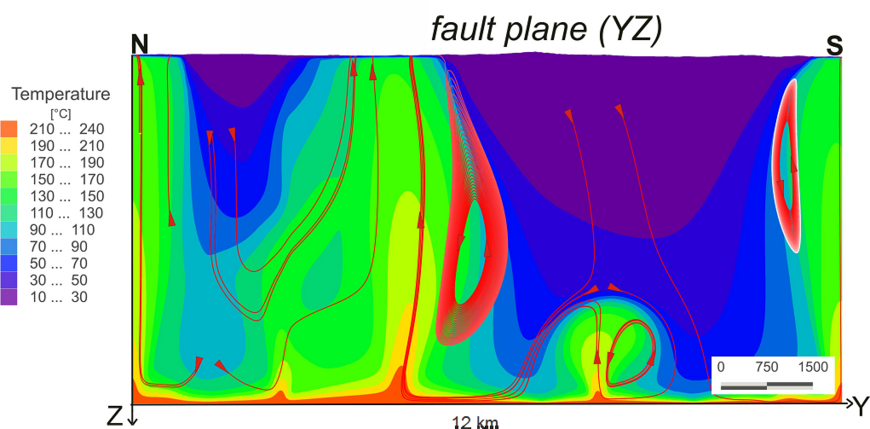Thermohaline processes in faulted basins
The expression “thermohaline processes” refers to the central role of groundwater in transferring energy (i.e. heat) and mass (i.e. solutes) over basin-scales (hundreds of km) and geological time periods (thousands or millions years). In this topic, numerical models and hydrochemical data are applied jointly to reveal the mechanisms causing environmental anomalies in real-case basin systems.
The studied anomalies comprise salty springs, upsurge of thermal waters or seawater intrusions. Major emphasis is given to the coupled nature of different hydrologic regimes (i.e. the interactions of the driving forces) and the impact of controlling factors, like hydraulic permeability heterogeneities, faults and variable fluid properties.
The interpretations of large-scale flow patterns and circulation time are further constrained by applying standard hydrochemistry and radioactive isotopes to infer water / rock interactions and evaluate groundwater age, respectively. Because of the large spatio-temporal scales involved, there has been a limited effort to carry out 3-dimenional analyses of thermohaline processes in faulted basins.
Recent studies suggest that the third dimension is essential to correctly describe the flow field, particularly in faulted areas (e.g. figure below) wherein 2D models can oversimplify the system.

One study area chosen to tackle the mentioned topics is the Tiberias Basin, Israel, where complex salinization processes are endangering the Sea of Galilee, the biggest natural freshwater resource of the whole area. Within the TBMod project joint numerical and chemical investigations will be applied to explain the mechanisms underlying the observed anomalies.


